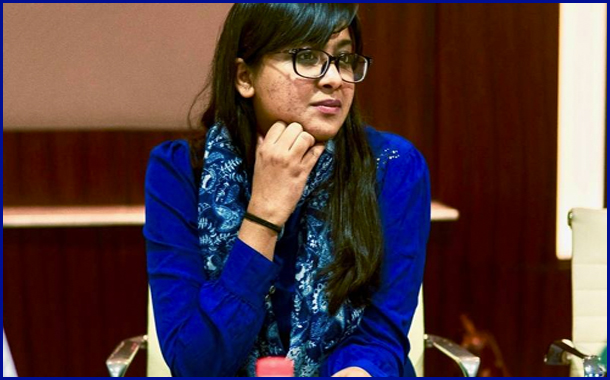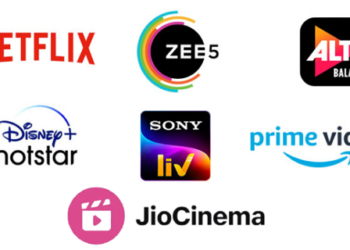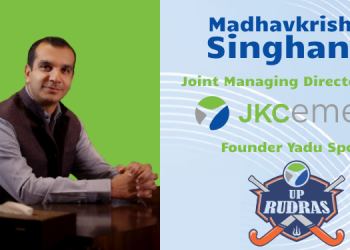Ruchi Kumar chooses to wear a ring on her wedding finger. But she is eager for the day that she no longer needs it.
“Are you married?” a male colleague at the Times of India asked me in 2011, pointing to the gold ring on my wedding finger. It was my first full-time job as a journalist and I was excited at the prospect of making tangible social change through my work. One week into my new role at the largest newspaper firm in India, I was not yet close to anybody on my team. So the question felt both intrusive and unwelcome.
But before I could even begin to answer, another male colleague quipped, “More importantly, are you happily married?” stressing the word “happily”. Both of them laughed at what they evidently felt was a witty comment at the expense of my personal life, and a few others, including some women, joined in.
I smiled and dismissed it for a number of reasons I won’t explain fully here, but including the unfortunate fact that as a woman starting out in a competitive industry, I did not wish to be seen as “aggressive”, “unsporting” or “threatening”, all of which I have been labelled as being for asserting myself. If anything, that small exchange reiterated the reasons why I choose to wear a fake wedding ring (or an engagement ring, as it is referred to in India).
An unwelcome suggestion
In December, the Afghan National Union of Journalists recommended that women reporters working in Afghanistan wear fake wedding rings to avoid harassment, a suggestion that was received with little enthusiasm by women journalists in the country, where I have been working for nearly four years.
Women journalists in Afghanistan face a multitude of challenges, including an overbearing patriarchy and barriers of culture and tradition.
I have been wearing a ring on my wedding finger since I was in college, in an attempt to avoid the uncalled-for attention I sometimes received from classmates, and later, from colleagues. For the same reason, my Facebook status has always declared “In a relationship”, even when that was not the case.
I had hoped the ring would act as an unspoken declaration that I was not in a position to respond to the advances of my male colleagues. Because, despite all my feminist beliefs, I came to realize that the phantasmal dignity of my fictitious husband was a stronger deterrent for many men who I came into contact with than respect for my personal space.
Ineffective deterrent
But has it been effective? It’s hard to say. Largely because I continue to receive unwanted advances — including from men working in journalism — that exhaust me both physically and emotionally. And I can’t tell you if it would be worse if I took off the ring, because I’m unwilling to experiment with that scenario.
The one time that I did change my Facebook status to ‘single’ I woke to a storm of messages, ranging from unsavoury friendship requests to very direct sexual invitations, some accompanied with nauseating visuals.
I have no illusions about gender sensitivity in the region’s media industry; I never did. A lot of what I have experienced was, sadly, expected and I was ready to deal with it. At times, I witness a refreshing lack of vulgarity and bias from male colleagues, and it makes all the difference. But, more often than not, my gender status brings an additional layer of challenges to what is already a difficult landscape.
There have been times when a male subject has refused to talk to me directly, instead answering questions only once they had been repeated by another man, disapproving of women working in roles traditionally dominated by men.
The latest example came just a few weeks ago. There have also been times when a male subject has asked to meet with me at his home, late at night, to “discuss” a story.
After many years in media, I’m yet to discard my fake ring. I wear it to office; I wear it in the field; I wear it to meetings. Men, and some women, ask me about my marital status. My level of honesty depends on how comfortable I feel with them, and when I pretend to have a husband, they often ask if he minds that I pursue a career as a journalist.
That the journalists’ union would give such advice to Afghan women reporters is absurd. The practice itself is ineffectual, and it is a daunting reminder that the value of my consent and dignity is far less than that of a fictional man.
Whether it is in Afghanistan, or a more progressive newsroom in India, independent women continue to be valued against the men with whom they associate. And if you don’t have such a manly influence in your life, your colleagues would like to suggest you make one up.
Authored by Ruchi Kumar – She has been working as a journalist in Afghanistan and India for seven years. Currently working in Kabul, Afghanistan, focusing on news stories from the Af-Pak region.
Originally published in: thesplicenewsroom

















